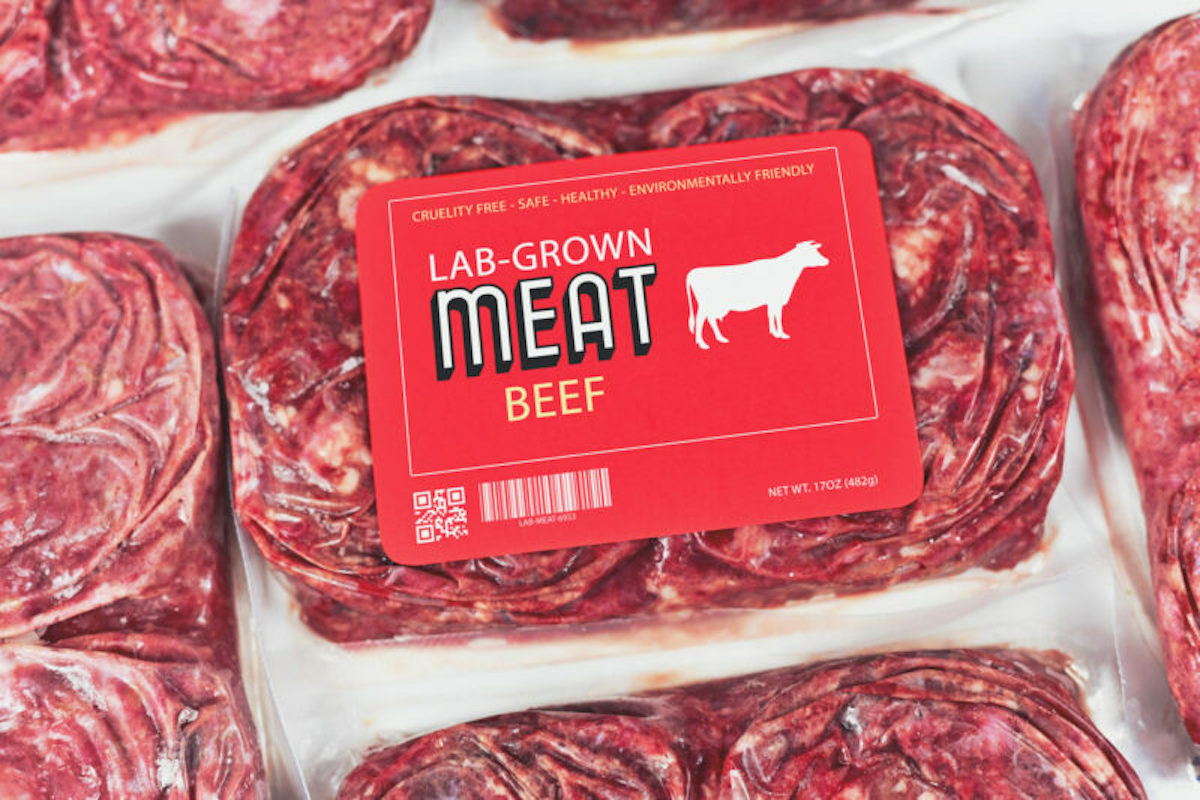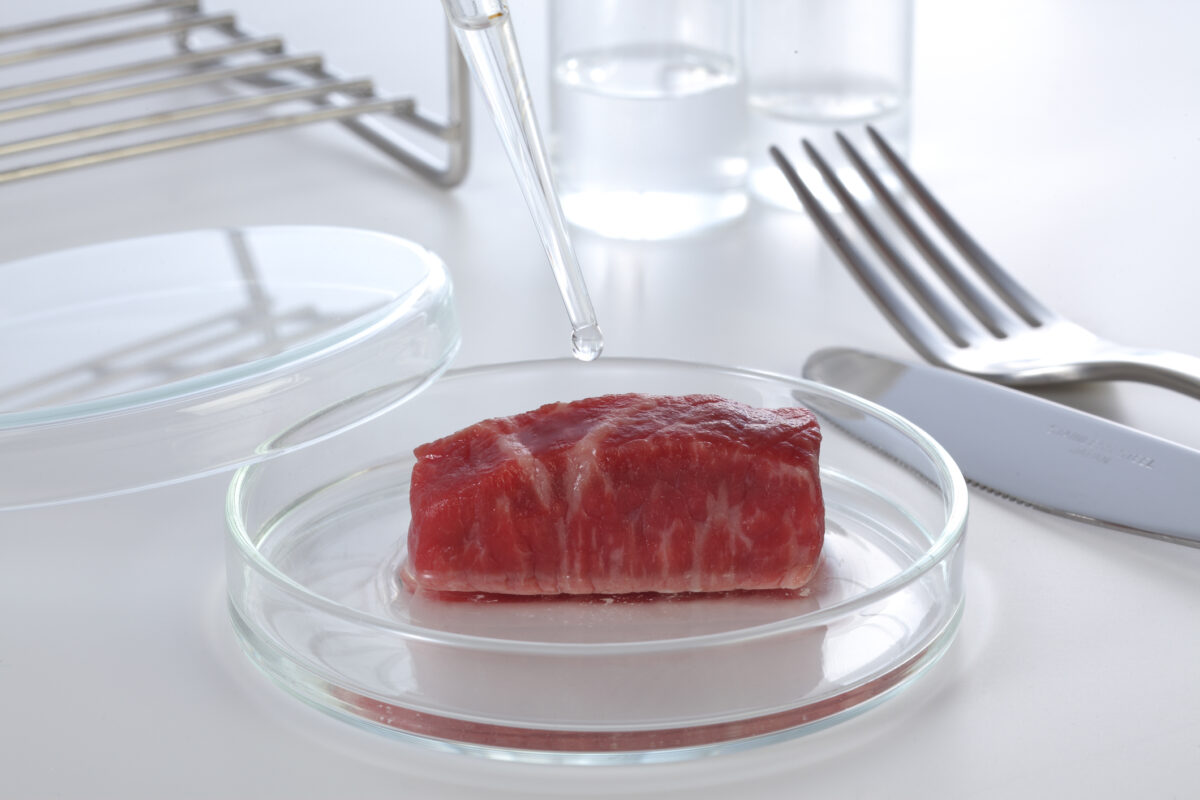British 3D Bio-Tissues produces and tastes ‘first-ever’ cultivated meat steak made entirely from pig cells

The look and taste of the cultured fillet is said to be identical to that of a traditional pork steak
Newcastle-based 3D Bio-Tissues (3DBT) – a company specialising in cell-based tissue engineering – says it has produced the ‘world’s first’ 100% cultivated pork steak fillet.
The fillet was made solely using pig cells and has the same shape and size as a small traditional fillet of pork, measuring 9cm wide, 4cm long and 1cm in height.
3DBT created the fillet using its patented foetal bovine serum-free cell booster City-Mix. The company says this patented media supplement allows for the pork cells to be cultivated into structured meat without the need for plant-based scaffolds, blends or fillers that are regularly used in cellular agriculture to guarantee structural integrity in cultivated meat.
Being free from added scaffolds, blends, or fillers, 3DBT believes its scientists have successfully developed and tasted the world’s first cultured meat that is made entirely from pig cells.
The company hopes its City-Mix solution – which is a standalone commercially available product – will help to reduce the cost of producing cultivated meat by eliminating the need for expensive growth factors.
Last October, 3DBT was named one of the winners of the Good Food Institute and EIT Food’s Cultivated Meat Challenge, which was set up to help reduce the cost of producing cultivated meat.
The taste test was carried out by Professor of Tissue Engineering at Newcastle University and Chief Executive Officer at 3DBT, Dr Che Connon, as well as the company’s Chief Science Officer, Dr Ricardo Gouveia. The fillet was first tested in the lab for a range of qualities in its raw and cooked states. When raw, the scientists said the cultivated steak had a similar appearance to conventional meat and had clearly visible fibres. It also showed a structural integrity that matched traditional raw meat when being cut. It also had a similar consistency and elasticity to meat from slaughter when touched, and didn’t have any pungent aroma.
As with traditional meat, when cooked, the cultivated pork fillet shrunk, it also seared well, according to the scientists, and showed crisping and charring on the surface, as well as aromas which were the same as those given off when frying traditional pork.
Following on from the successful technical tests, the company will work towards developing a showcase product, enabling them to present a full-scale fillet of cultivated pork that will be cooked at consumed at a public event in London in the near future.
3DBT hopes the continued success of its structure meat technology can help to quicken the delivery of cultivated products to consumers and future suppliers. It says it aims to soon collaborate with manufacturers and supermarkets to enable the sale of cultured meat.
Despite such advancement, the sale of lab-grown meat is currently only legal in Singapore, meaning the company will have to still wait for novel food regulatory approval before consumption is allowed in the UK and EU.
According to 3DBT, the successful development of the company’s cultured pork fillet has been made possible due to significant investment from BSF Enterprise. BSF listed on the London Stock Market last year and successfully raised the funds to acquire 3DBT. It’s main aim is to advance the tissue engineering sector, enabling the production of high-quality cell-based meat and leather in the UK.
Che Connon, Chief Executive of 3DBT, said: “This is a significant scientific breakthrough which has very positive implications not just for BSF and 3DBT but also for the UK and the cultivated meat industry as a whole. We are absolutely delighted with the appearance, taste, aroma, and texture of our cultivated pork, which is the first time we have fully sampled our product. Our cruelty-free fillet has exceeded our expectations in all respects, and we are extremely excited about the technological progress we are making and the impact this could have on our industry.
“City-mixTM, our serum-free media supplement in which we cultivated the fillet, is helping to greatly reduce the cost of cultivated meat such that it may become economically viable in the near future. At the same time, our ‘structure without scaffold’ technology is helping to make cultivated meat that more closely resembles traditional meat in every respect without the need for plant-based additives. We look forward to taking the findings through to the next stage of development, focused on producing a chef-ready product for public consumption.”








